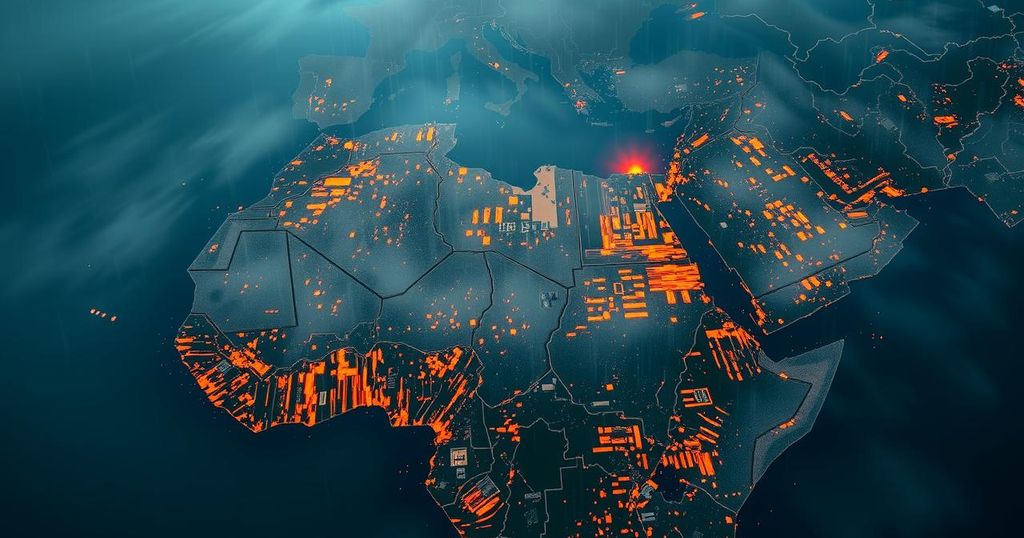Impact of Climate Change on Recent Flooding in Africa
International scientific research indicates that recent severe flooding in Cameroon, Chad, Niger, Nigeria, and Sudan was worsened by climate change, with increased rainfall intensity by 5-20%. The flooding has caused substantial mortality and displacement, and future rainfall patterns may similarly escalate due to anticipated global warming. Calls for financial support and improved infrastructure are emphasized in light of Africa’s minimal carbon footprint yet extreme vulnerability to climate effects.
International scientists revealed that recent relentless rains exacerbating deadly floods across Cameroon, Chad, Niger, Nigeria, and Sudan were intensified by anthropogenic climate change. The research conducted by World Weather Attribution (WWA) concluded that global warming increased the severity of this year’s seasonal rainfall by approximately 5 to 20% in the Niger and Lake Chad basins. Furthermore, the study indicated that if current warming trends persist, such extreme precipitation events may become commonplace. Izidine Pinto, a researcher at the Royal Netherlands Meteorological Institute, highlighted, “Spells of heavy summer rainfall have become the new normal in Sudan, Nigeria, Niger, Cameroon and Chad.” The floods in 2023 resulted in approximately 1,500 fatalities and displaced over a million individuals in West and Central Africa, as reported by the U.N. Office for the Coordination of Humanitarian Affairs (OCHA). The intense rainfall further overwhelmed existing dam systems in Nigeria and Sudan. WWA also warned that a surge in global temperatures reaching 2 degrees Celsius could bring about an annual occurrence of such downpours by the 2050s, emphasizing the necessity for enhanced investments in early warning systems and infrastructure improvements. Joyce Kimutai, a researcher at the Centre for Environmental Policy at Imperial College in London, remarked, “Africa has contributed a tiny amount of carbon emissions globally, but is being hit the hardest by extreme weather,” stressing the importance of meaningful financial commitments from wealthier nations during the COP29 climate talks scheduled for November.
The article centers on the urgent issue of climate change and its exacerbating effects on weather patterns, particularly in vulnerable regions of Africa. It specifically addresses the correlations between human-induced climate change and recent catastrophic flooding incidents that have resulted in significant loss of life and displacement. This trend, aggravated by global warming, poses a dire need for improved disaster preparedness and international cooperation to address the ramifications of climate effects on marginalized populations.
In summary, the findings from international climate scientists underscore the alarming connection between climate change and the intensification of rainfall that has led to devastating floods in parts of Africa. The urgent call for action at the upcoming COP29 climate talks emphasizes the responsibilities of wealthier nations to provide financial assistance and resources to mitigate the impacts faced by African countries, which are disproportionately affected despite their minimal contributions to global carbon emissions.
Original Source: www.usnews.com




Post Comment